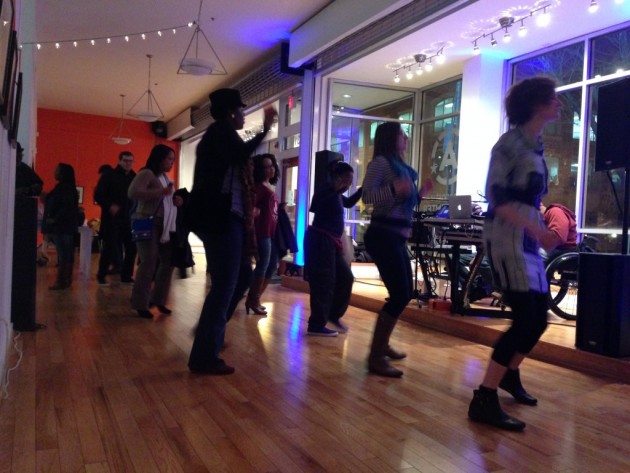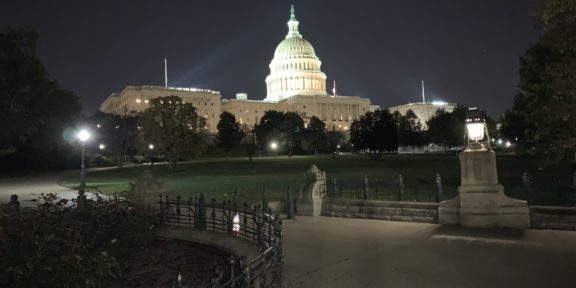Pregame Rituals Help Players Ready for Big Games
The pressure on athletes to win can lead to preparation rituals that range from mundane to strange. Miami Heat guard Lebron James’ famous powder clap routine before each game has been widely scrutinized and imitated.
Kurt Mangum, 21, linebacker for the Bison, always makes sure to talk to his pastor, Charles Johnson, of Victory Community Church in Phoenix, Ariz., before the game and say a prayer. He also likes to have his hair and beard cut before every game.
Mangum has a special pair of Nike Pro Compression Training Crew Socks that he likes to wear. “They are the same socks I’ve had since I played at University of Washington, and I usually wear two left socks.” These little things all make him feel comfortable on the playing field.
Not all rituals are done alone, however. Mangum also likes to say the “Lord’s Prayer” at the 50-yard line before every game and before the second half with his teammate Anthony Whitlow, 20, also a linebacker.
Ron Bolton, defensive backs coach for Howard University Bison football, says that most of the rituals he has seen on the team are pretty normal. “They listen to their music, or want to be to themselves before a game. One player doesn’t talk at all for two days before a game,” Bolton says. “They may want their hair cut a certain way, little things to make themselves feel good.”
Such routines are nothing new. Antoine Bethea is a Howard University alumnus who played safety for the Bison and is now a professional NFL player for the Indianapolis Colts.
“For every game I had to watch the movie ‘Gladiator’ the night before,” Bethea says. “I like that movie because he was fighting for his family,” he said of the main character.
“That morning, I would always go to chapel. Then, in the locker room before the game, I would say a prayer to myself.” Bethea finished his routine off, he says, by playing the song “Dear Mama” by rapper Tupac Shakur.
This may seem like an extensive routine, but it worked for Bethea. During his sophomore year, Bethea had 109 tackles.
He maintains his routine, in part, in the NFL. “I still go to chapel the night before home games, and I have a set playlist of songs I like to listen to before a game,” he says. He also still has a pregame prayer. “I like to find out where my family is sitting and give them a salute, too.”
These little things, done in a particular order, compose a mini ceremony of sorts for each player that brings them comfort and helps them feel relaxed on the field. Some things can be considered rather strange to those not familiar with such rituals. “Big” John Henderson, defensive tackle for the Oakland Raiders, has a video on YouTube from 2006 of his pregame routine where he had his trainer slap him hard across the face.
Howard University’s wide receiver coach Jonathan Brewer remembers some particularly interesting routines of former players. Kevin Simmons, wide receiver for the Bison from 1999 to 2002, would eat an entire pack of bubble gum before every game, Brewer said. “He would chew each piece a few times and then spit it out—all 32 pieces.”
Another player, Shaun Miller, wide receiver during the same time period, “had to drink five Red Bulls before each game,” Brewer said. “If players didn’t get to do whatever their thing was, it could throw their game off.”
Such superstitions are common among athletes, especially to help turn around losing streaks.
Head football coach Gary Harrell keeps his rituals in the form of a schedule. “When I have a schedule that works, I like to stick to it,” Harrell says. “Like for a while our Thursday practice time was at 6 a.m. It seemed to be working well for us, but since we lost to Georgetown, I think we will go back to our regular 3:30 p.m. practice time.”
Another thing that Harrell noticed is the color of the uniforms. “All the games we’ve lost, we have been wearing blue. When we lost to Georgetown, we were wearing blue,” Harrell said. “I think we’ll mix it up this time, maybe a white shirt with blue bottoms. Just do something different.”
Harrell also plans to get the team off campus for the homecoming game this year. The players will stay in a hotel to help them be focused before the game. “We are trying to bring the win home for you guys,” he says.
Although it is questionable whether the players’ superstitions are warranted, it certainly does help with mental preparation.
Bethea agrees that these rituals help with getting a player’s head right before the game. “Athletes might be somewhat superstitious,” Bethea says, “but it’s understandable when you have been doing something for a number of years and it worked for you and helped you feel comfortable before you go out to play.”



